Improve counting skills Adding up to 100 Worksheets for Ages 5-8
19 filtered results
-
From - To
Enhance your child's counting abilities with our "Improve Counting Skills: Adding up to 100 Worksheets" designed for ages 5-8. These engaging, educational worksheets feature fun activities that help kids practice addition up to 100, fostering a robust understanding of basic math concepts. Perfect for young learners, our worksheets encourage independent learning and boost confidence in counting. With varied exercises and vibrant designs, children will look forward to sharpening their skills while having fun. Ideal for both classroom and home use, these worksheets ensure a strong mathematical foundation, setting the stage for future success in arithmetic.
Parents and teachers should prioritize improving counting skills up to 100 for children ages 5-8 because mastering this foundational numerical ability is critical for later math success and overall cognitive development. Early counting skills are fundamental building blocks for understanding more complex mathematical concepts such as addition, subtraction, multiplication, and division. By learning to count up to 100, children develop number sense, enhance their memory and attention skills, and build the confidence needed to tackle increasingly challenging problems.
Furthermore, proficiency in counting by the age of 8 has been directly linked to better problem-solving abilities and logical thinking. This not only applies to mathematics but also serves children in other academic subjects and in everyday life situations, such as following recipe instructions or managing their allowances. Counting exercises also significantly contribute to developing fine motor skills and pattern recognition, which are essential for tasks ranging from writing to reading comprehension.
Equipping young learners with the ability to count to 100 allows them to achieve key developmental milestones and forms a solid foundation for lifelong learning. When children succeed early on, it fosters a positive attitude toward education, instilling in them a sense of achievement and eagerness to learn more complex subjects.


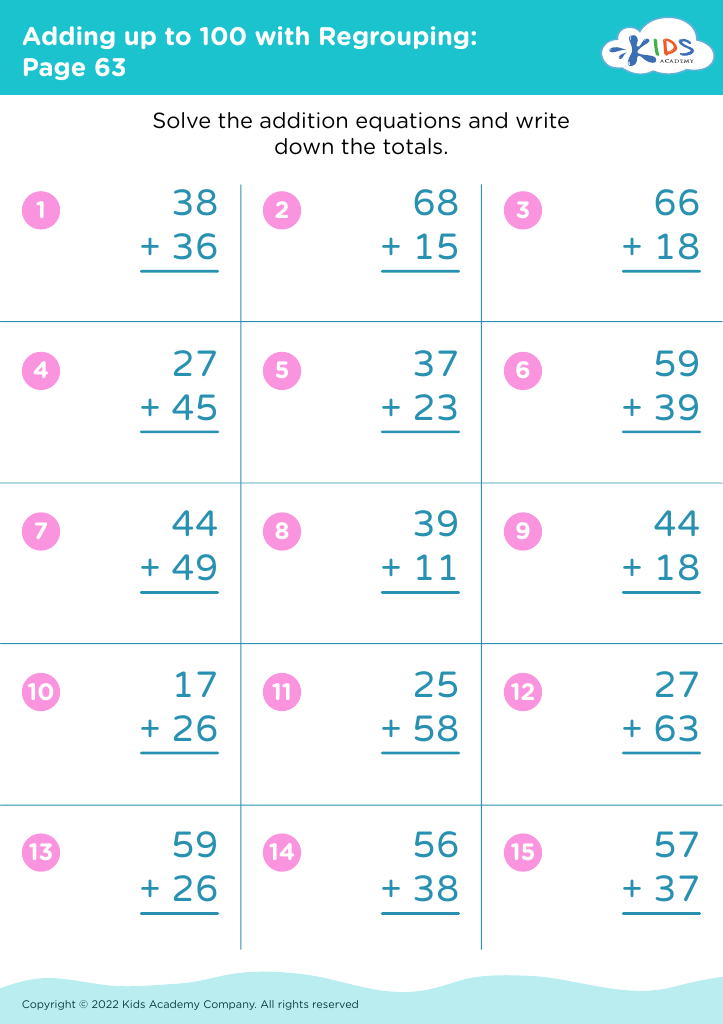

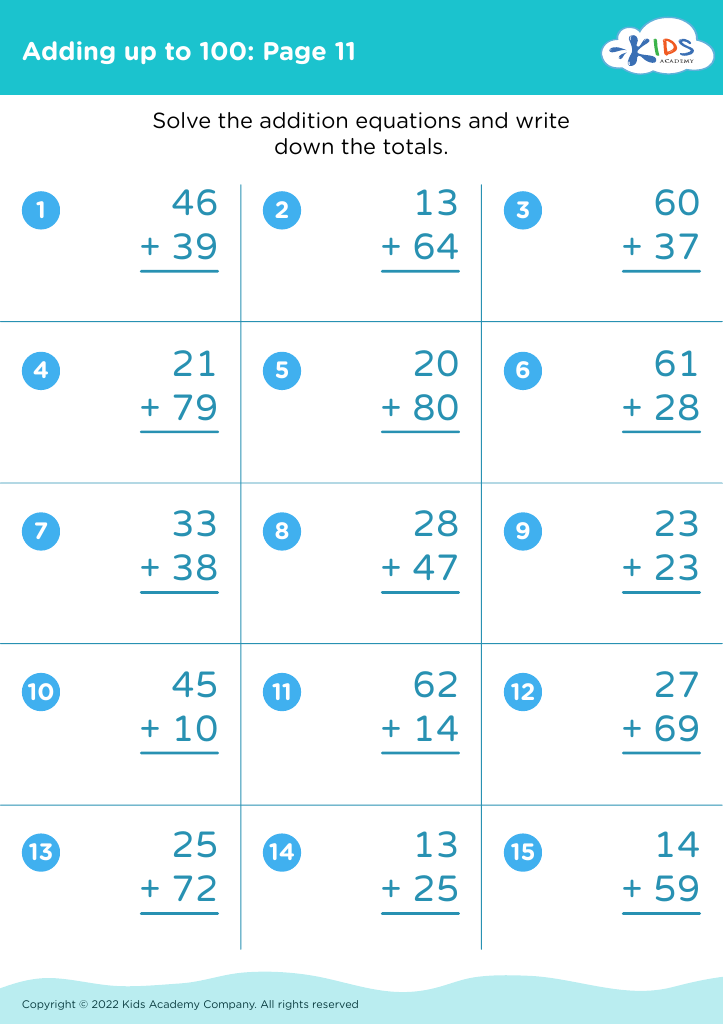



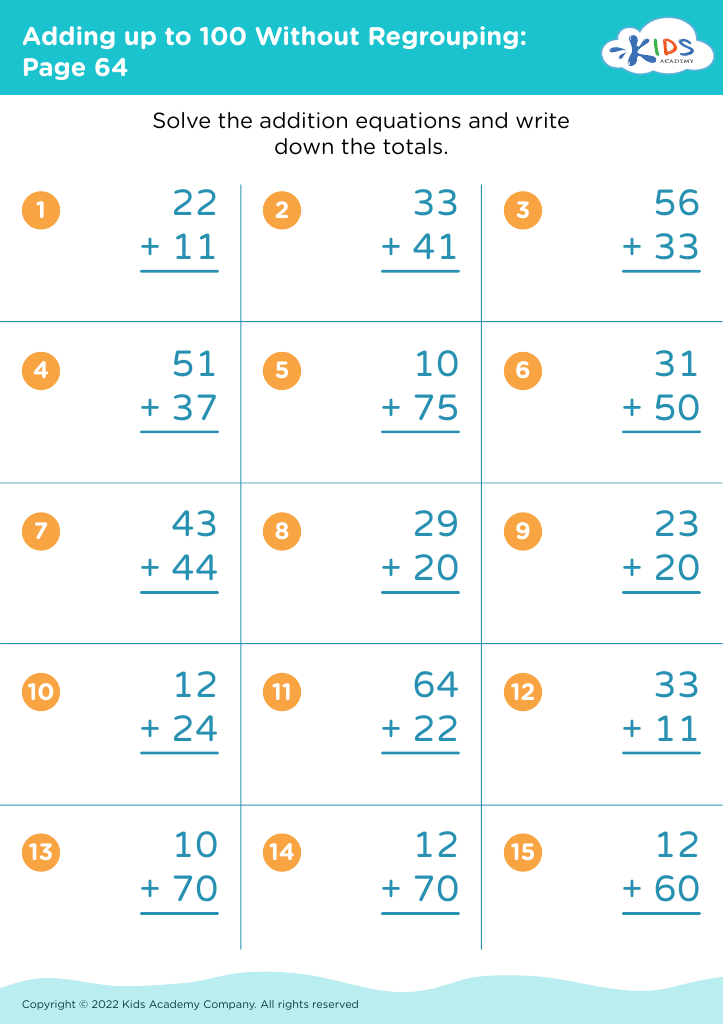


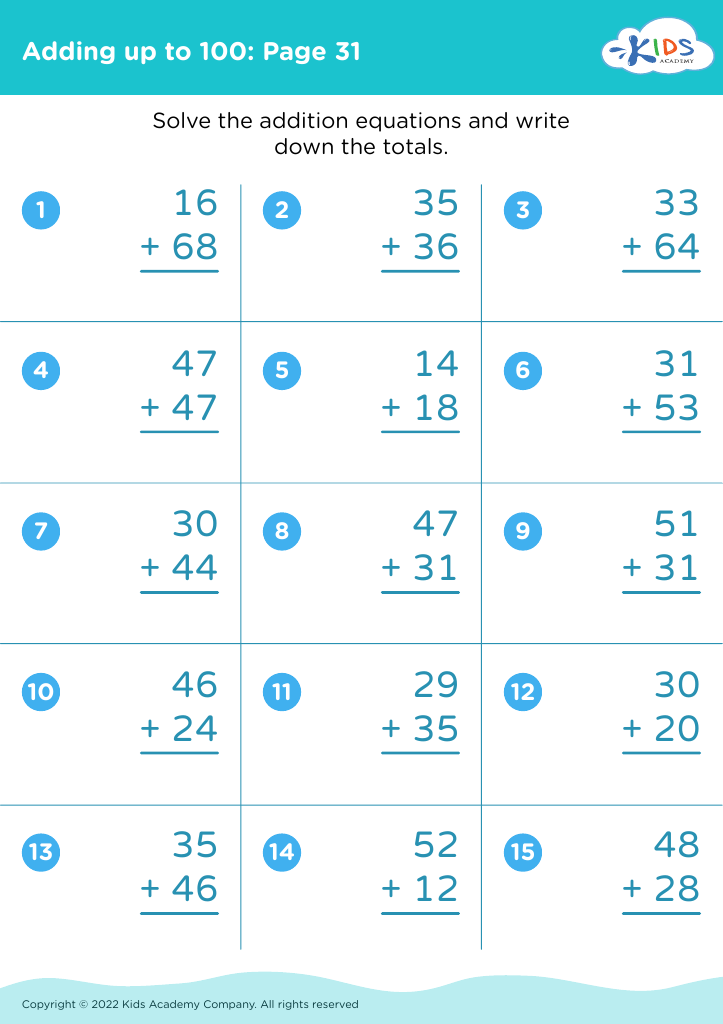



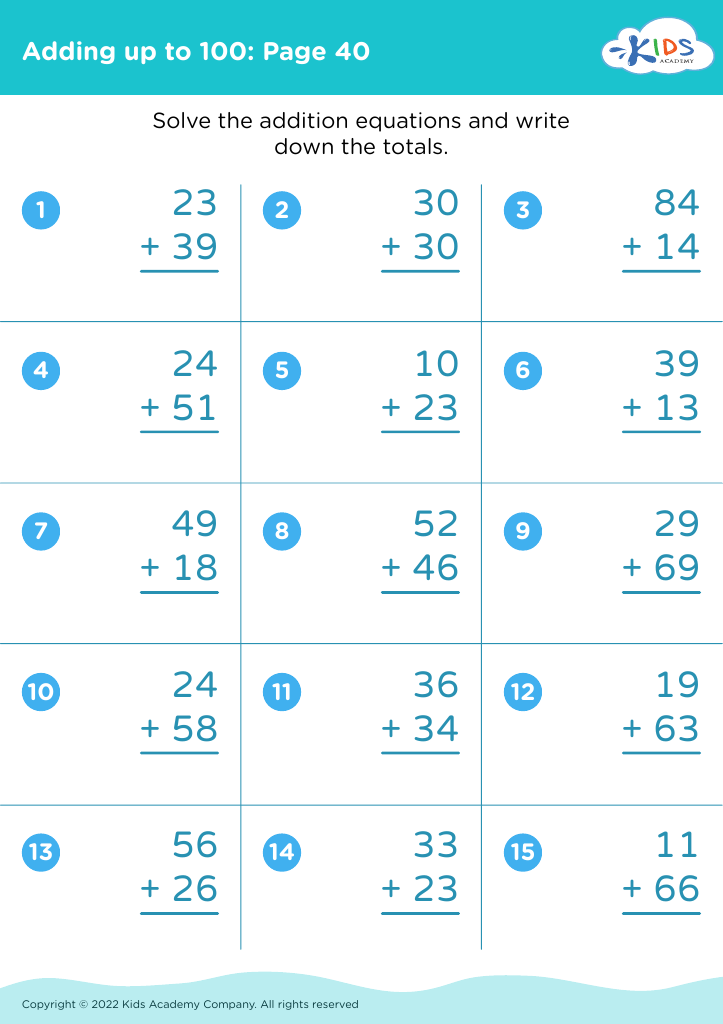
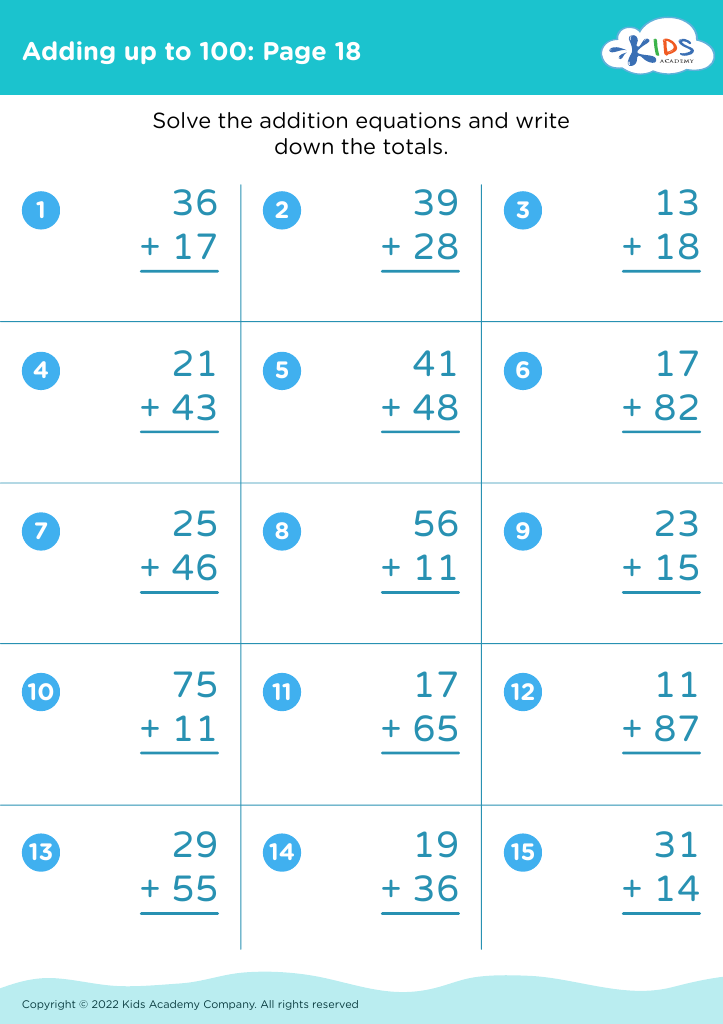

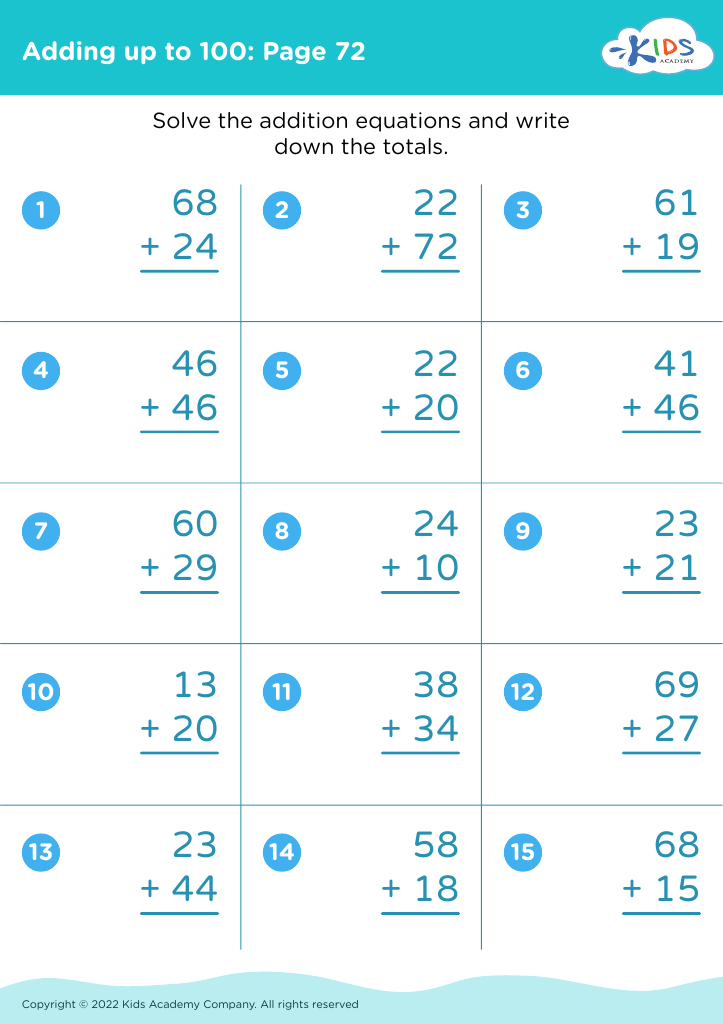

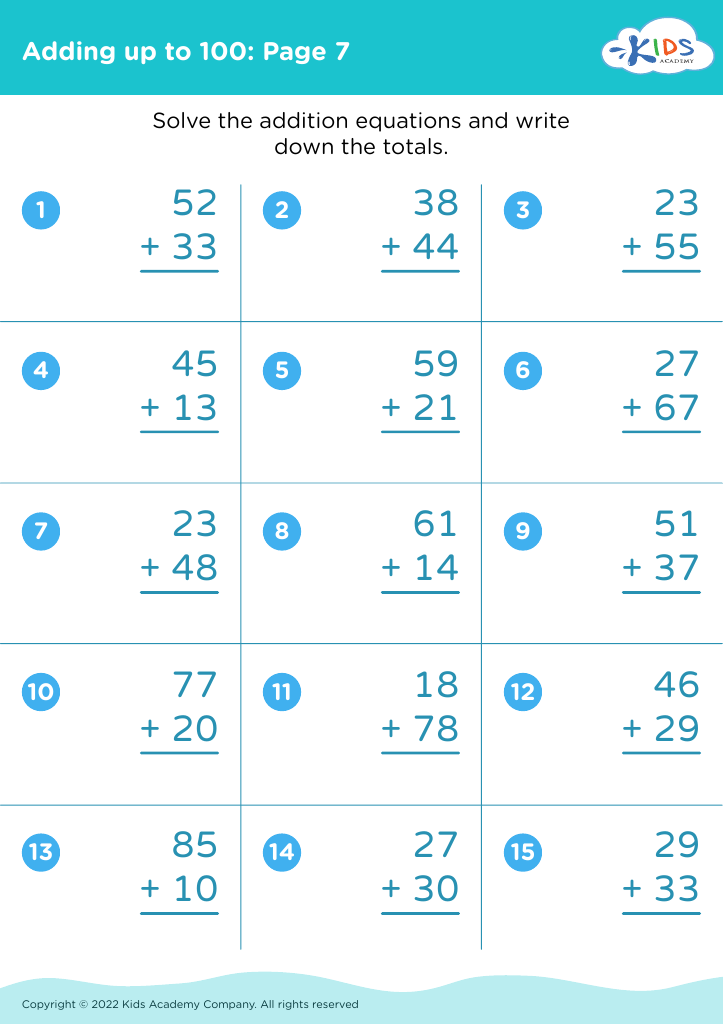







%20(1).jpg)










